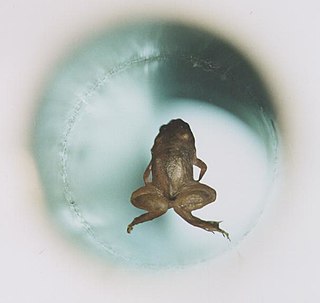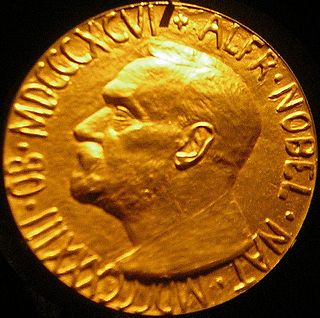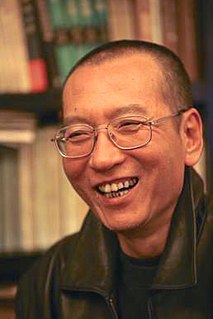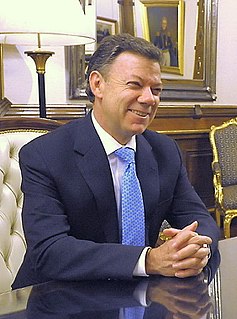This is a list of all the 29 heads of state and heads of government who have received the Nobel Prize. Excepting Winston Churchill who received the Literature Prize, all the others were awarded with a Peace Prize.
| Nobelist. [1] | Prize [1] | Country [1] | Status [1] | Year [1] | |
|---|---|---|---|---|---|
 | Auguste Beernaert | Peace | former Prime Minister of Belgium | 1909 | |
 | Léon Bourgeois | former Prime Minister of France | 1920 | ||
 | Aristide Briand | 1926 | |||
 | Gustav Stresemann | former Chancellor of Germany | |||
 | Lester Bowles Pearson | future Prime Minister of Canada | 1957 | ||
 | Eisaku Satō | former Prime Minister of Japan | 1974 | ||
 | Lech Wałęsa | future President of Poland | 1983 | ||
 | Nelson Mandela | future President of South Africa | 1993 | ||
 | Shimon Peres | former and future Prime Minister and future President of Israel | 1994 | ||
 | José Ramos Horta | future President and Prime Minister of East Timor | 1996 | ||
 | Jimmy Carter | former President of the United States | 2002 | ||
 | Martti Ahtisaari | former President of Finland | 2008 | ||

The Ig Nobel Prize is a satiric prize awarded annually since 1991 to celebrate ten unusual or trivial achievements in scientific research, its stated aim being to "honor achievements that first make people laugh, and then make them think." The name of the award is a pun on the Nobel Prize, which it parodies, and on the word ignoble.

The Nobel Prize is not a single prize, but five separate prizes that, according to Alfred Nobel's 1895 will, are awarded "to those who, during the preceding year, have conferred the greatest benefit to humankind”.

The Nobel Prize in Physics is a yearly award given by the Royal Swedish Academy of Sciences for those who have made the most outstanding contributions for mankind in the field of physics. It is one of the five Nobel Prizes established by the will of Alfred Nobel in 1895 and awarded since 1901; the others being the Nobel Prize in Chemistry, Nobel Prize in Literature, Nobel Peace Prize, and Nobel Prize in Physiology or Medicine.

The Nobel Prize in Physiology or Medicine is awarded yearly by the Nobel Assembly at the Karolinska Institutet for outstanding discoveries in physiology or medicine.

Shirin Ebadi is an Iranian political activist, lawyer, a former judge and human rights activist and founder of Defenders of Human Rights Center in Iran. On 10 October 2003, Ebadi was awarded the Nobel Peace Prize for her significant and pioneering efforts for democracy and human rights, especially women's, children's, and refugee rights.

Muhammad Yunus is a Bangladeshi social entrepreneur, banker, economist, and civil society leader who was awarded the Nobel Peace Prize for founding the Grameen Bank and pioneering the concepts of microcredit and microfinance. These loans are given to entrepreneurs too poor to qualify for traditional bank loans. Yunus and the Grameen Bank were jointly awarded the Nobel Peace Prize "for their efforts through microcredit to create economic and social development from below". The Norwegian Nobel Committee said that "lasting peace cannot be achieved unless large population groups find ways in which to break out of poverty" and that "across cultures and civilizations, Yunus and Grameen Bank have shown that even the poorest of the poor can work to bring about their own development". Yunus has received several other national and international honours. He received the United States Presidential Medal of Freedom in 2009 and the Congressional Gold Medal in 2010.

Wangarĩ Muta Maathai was a Kenyan social, environmental, and political activist and the first African woman to win the Nobel Prize. As a beneficiary of the Kennedy Airlift she studied in the United States, earning a Bachelor's Degree from Mount St. Scholastica and a Master's Degree from the University of Pittsburgh. She went on to become the first woman in East and Central Africa to become a Doctor of Philosophy, receiving her Ph.D. from the University of Nairobi in Kenya.

Jerome Karle was an American physical chemist. Jointly with Herbert A. Hauptman, he was awarded the Nobel Prize in Chemistry in 1985, for the direct analysis of crystal structures using X-ray scattering techniques.
Since the first award in 1901, conferment of the Nobel Prize has occasionally engendered criticism and controversy. After his death in 1896, the will of Swedish industrialist Alfred Nobel established that an annual prize be awarded for service to humanity in the fields of physics, chemistry, physiology or medicine, literature, and peace. Similarly, the Sveriges Riksbank Prize in Economic Sciences in Memory of Alfred Nobel is awarded along with the Nobel Prizes.
Research Corporation for Science Advancement (RCSA) is an organization in the United States devoted to the advancement of science, funding research projects in the physical sciences. Since 1912, Research Corporation for Science Advancement has identified trends in science and education, financing thousands of scientific research projects that have changed our world.

The Nobel Prize in Literature is a Swedish literature prize that is awarded annually, since 1901, to an author from any country who has, in the words of the will of Swedish industrialist Alfred Nobel, "in the field of literature, produced the most outstanding work in an idealistic direction". Though individual works are sometimes cited as being particularly noteworthy, the award is based on an author's body of work as a whole. The Swedish Academy decides who, if anyone, will receive the prize. The academy announces the name of the laureate in early October. It is one of the five Nobel Prizes established by the will of Alfred Nobel in 1895. On some occasions the award has been postponed to the following year, most recently in 2018.

The 2009 Nobel Peace Prize was awarded to United States President Barack Obama for his "extraordinary efforts to strengthen international diplomacy and cooperation between people". The Norwegian Nobel Committee announced the award on October 9, 2009, citing Obama's promotion of nuclear nonproliferation and a "new climate" in international relations fostered by Obama, especially in reaching out to the Muslim world.

The Nobel Prize in Chemistry is awarded annually by the Royal Swedish Academy of Sciences to scientists in the various fields of chemistry. It is one of the five Nobel Prizes established by the will of Alfred Nobel in 1895, awarded for outstanding contributions in chemistry, physics, literature, peace, and physiology or medicine. This award is administered by the Nobel Foundation, and awarded by the Royal Swedish Academy of Sciences on proposal of the Nobel Committee for Chemistry which consists of five members elected by the Academy. The award is presented in Stockholm at an annual ceremony on 10 December, the anniversary of Nobel's death.

The Nobel Peace Prize is one of the five Nobel Prizes established by the will of Swedish industrialist, inventor, and armaments manufacturer Alfred Nobel, along with the prizes in Chemistry, Physics, Physiology or Medicine, and Literature. Since March 1901, it has been awarded annually to those who have "done the most or the best work for fraternity between nations, for the abolition or reduction of standing armies and for the holding and promotion of peace congresses".

The 2010 Nobel Peace Prize was awarded to imprisoned Chinese human rights activist Liu Xiaobo "for his long and non-violent struggle for fundamental human rights in China". The laureate, once an eminent scholar, was reportedly little-known inside the People's Republic of China (PRC) at the time of the award due to official censorship; he partook in the Tiananmen Square protests of 1989 and was a co-author of the Charter 08 manifesto, for which he was sentenced to 11 years in prison on 25 December 2009. Liu, who was backed by former Czech president Václav Havel and anti-apartheid activist and cleric Desmond Tutu, also a Nobel Peace Prize winner, received the award among a record field of more than 200 nominees.

Tawakkol Abdel-Salam Khalid Karman is a Yemeni Nobel Laureate, journalist, politician, and human rights activist. She leads the group "Women Journalists Without Chains," which she co-founded in 2005. She became the international public face of the 2011 Yemeni uprising that is part of the Arab Spring uprisings. In 2011, she was reportedly called the "Iron Woman" and "Mother of the Revolution" by some Yemenis. She is a co-recipient of the 2011 Nobel Peace Prize, becoming the first Yemeni, the first Arab woman, and the second Muslim woman to win a Nobel Prize.

The 2012 Nobel Peace Prize was awarded to the European Union (EU) "for over six decades [having] contributed to the advancement of peace and reconciliation, democracy and human rights in Europe" by a unanimous decision of the Norwegian Nobel Committee.

The 2016 Nobel Peace Prize was awarded to the President of Colombia Juan Manuel Santos "for his resolute efforts to bring the country’s more than 50-year-long civil war to an end, a war that has cost the lives of at least 220,000 Colombians and displaced close to six million people." The conflict is the longest running war, and last remaining guerrilla struggle, in the Americas. The Nobel Peace Prize is awarded annually to those who have "done the most or the best work for fraternity between nations, for the abolition or reduction of standing armies and for the holding and promotion of peace congresses". The announcement was made on 7 October at a press conference at the Nobel Peace Center, and the formal award ceremony took place on 10 December at the Oslo City Hall.

The 2017 Nobel Peace Prize was awarded to the International Campaign to Abolish Nuclear Weapons (ICAN) "for its work to draw attention to the catastrophic humanitarian consequences of any use of nuclear weapons and for its ground-breaking efforts to achieve a treaty-based prohibition on such weapons," according to the Norwegian Nobel Committee announcement on October 6, 2017. The award announcement acknowledged the fact that "the world's nine nuclear-armed powers and their allies" neither signed nor supported the treaty-based prohibition known as the Treaty on the Prohibition of Nuclear Weapons or nuclear ban treaty, yet in an interview Committee Chair Berit Reiss-Andersen told reporters that the award was intended to give "encouragement to all players in the field" to disarm. The award was hailed by civil society as well as governmental and intergovernmental representatives who support the nuclear ban treaty, but drew criticism from those opposed. At the Nobel Peace Prize award ceremony held in Oslo City Hall on December 10, 2017, Setsuko Thurlow, an 85-year-old woman Who survived the 1945 atomic bombing of Hiroshima, and ICAN Executive Director Beatrice Fihn jointly received a medal and diploma of the award on behalf of ICAN and delivered the Nobel lecture.